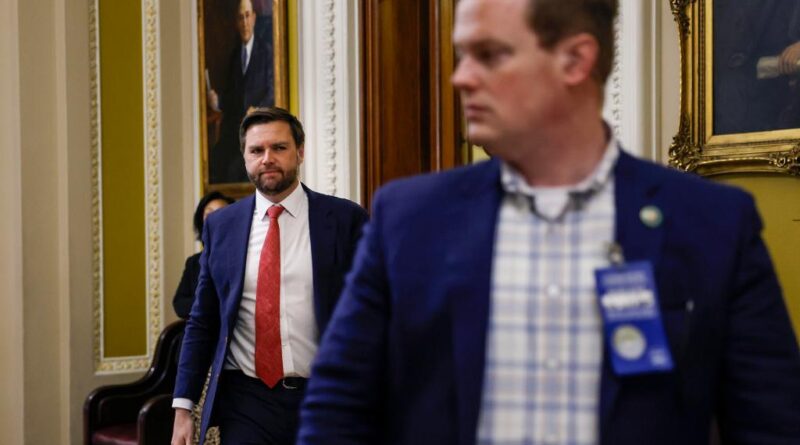Congress’ Massive Spending Bill Includes a Hidden Bailout for Censors

Just when it appeared that Congress was set to make a stand against the Censorship-Industrial Complex, last-minute actions may have cost free speech a significant victory.
Within the 1,547-page continuing resolution currently being considered by Congress to fund the government until March, there exists a section called “Global Engagement Center Extension.”
Unless amended, this will extend the life of a key government censorship mechanism that was slated for closure.
The State Department has recently revealed its intention to terminate the Global Engagement Center (GEC) in a court filing.
The department’s plan to “realign” GEC’s personnel and funding towards other “foreign information manipulation and interference activities” raised concerns among advocates for free speech — yet any concession from the Deep State would have been notable.
Established to combat foreign propaganda and disinformation efforts, the GEC, much like other branches of the federal censorship apparatus, saw its mission creep into infringing upon civil rights, broadening its scope to suppress the speech of Americans deemed to have wrongthink.
This was highlighted in the Daily Wire v. State Department case, where plaintiffs claim that GEC’s funding and support for “risk-raters” like Global Disinformation Index and NewsGuard constituted First Amendment-violating censorship-by-proxy.
These organizations aim to eliminate alleged mis- and disinformation by jeopardizing the revenue models of outlets that report news and opinions they consider unacceptable.
They achieve this by depriving these outlets of essential advertising income and putting them on unofficial blacklists used by companies to decide where not to advertise to ensure “brand safety.”
Consequently, conservative and independent media outlets often face undue penalties due to subjective rating practices and inherent biases, causing significant financial and reputational damage.
The New York Post has fallen victim to this wrongthink dragnet, as has RealClearPolitics, which provides perspectives from both sides of the political spectrum.
As I testified before the House Small Business Committee in June, GEC’s funding and endorsement of risk-raters indicated our government had effectively curtailed freedom of speech and the press — with taxpayer money and through a foreign-facing entity.
The committee later produced a report on government-supported censorship, claiming that GEC not only endorsed these media demonetizers but also funded, “develop[ed], then promot[ed] tech start-ups . . . in the disinformation detection realm to private sector entities equipped with domestic censorship capabilities.”
GEC’s involvement in domestic speech issues was evident in its participation as an “external stakeholder” in the federal government’s Election Integrity Partnership, which played a role in limiting speech during the 2020 election.
Through the EIP initiative, encouraged by the Department of Homeland Security, four government-affiliated NGOs pressured social media platforms to stifle unwanted election-related discourse.
Those groups combed through hundreds of millions of social media posts to pinpoint infringing content and alerted platforms like Facebook and Twitter for its removal.
GEC also played a role in identifying the problematic content reported to social media platforms by the EIP.
When journalists associated with the “Twitter Files” and others revealed GEC’s efforts, leading to congressional inquiries, the State Department retaliated against critics of GEC — issuing official press guidance to discredit now Sen.-elect Jim Banks (R-Ind.) as well as reporters Gabe Kaminsky and Matt Taibbi.
According to the legislation that established it, GEC was expected to cease operation at the end of this year.
Its authorization was not renewed within the National Defense Authorization Act, the annual defense bill that passed through the House on Dec. 11.
Yet the State Department expressed “hopeful” intentions for Congress to extend this crucial mandate through alternative means, according to a spokesperson.
Now, with GEC’s extension embedded in Congress’ late-stage funding proposal, it appears the department has received what it desired.
This duplicity makes President-elect Trump’s “Free Speech Policy Initiative” even more essential.
As part of this initiative, he has promised to prohibit federal agencies from colluding with censors and funding mis- or dis-information labeling efforts.
Additionally, he has vowed to terminate bureaucrats involved in censorship and defund NGOs and universities targeting dissenting speech.
Brendan Carr, Trump’s nominee for FCC chairman, has stated that we must “dismantle the censorship cartel” and is investigating NewsGuard’s activities towards this end.
Similarly, Andrew Ferguson, Trump’s candidate for FTC chairman, has remarked: “If platforms or advertisers are conspiring to suppress free speech in violation of antitrust laws, the FTC must take action and dismantle those cartels.”
The selection of two prominent victims of the Censorship-Industrial Complex — Robert F. Kennedy Jr. and Dr. Jay Bhattacharya — to lead public health agencies that targeted them further indicates that sweeping changes are on the horizon.
“The fight for Free Speech is a matter of victory or death for America,” Trump has declared.
If Congress is unwilling to act, the Trump administration must fill that gap to protect our First Amendment rights.
Benjamin Weingarten is editor at large at RealClearInvestigations.



